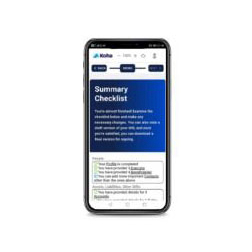Our Last Will and Testament Checklist
How to get started
Make a plan for your loved ones’ future today by creating a lasting legacy. After you have determined your executor(s), beneficiaries, and the amount of each beneficiary’s inheritance, you may utilise our Online Will Writing App to put your legacy plan in place.
Things to note before you begin.
Based on Section 2 of Wills Act 1959 (Act 246), Will can be defined as a declaration intended to have the legal effect of the intentions of a testator with respect to his property or other matters which he desires to be carried into effect after his death. In simple words, it is a legal document in writing signed by you (the testator) and witnesses, setting forth your wishes about distributing your property and care of your minor children.
A testator is a person who makes or writes a Will.
By not making a Will, you will not be able to distribute the assets according to your wishes after your death. Instead, the Court will define who will actually benefit from your death according to the law. When a person dies without making a Will, he is said to have died “intestate”. The relevant law which deals with the distribution of the property of an intestate is the Distribution Act 1958 (“Distribution Act”), which only applies to non-Muslims in Peninsular Malaysia. This means that without a Will, your estate will have to be distributed in accordance with the Distribution Act 1958. By having this Last Will and Testament, it will supersede the Distribution Act 1958, where you can control your distribution to your loved ones.
Furthermore, if you died intestate, your next of kin would have to apply for a Letter of Administration to appoint an administrator and would have to go through a lengthy process that can take years to obtain the Letter of Administration. However, if you have a Will, the process will be much faster (shorter time than Letter of Administration) as your appointed executor of your Will would apply for a Grant of Probate from the Court to allow your executor to execute your Will.
A Grant of Probate is a document, issued by the High Courts, which appoints an executor (or up to 4 of them if acting jointly) and once the Grant of Probate is granted, the Executor(s) named in the Will is authorised to administer the deceased’s estate. This can be one of the most straightforward ways to get access to the deceased property with a minimum time required.
Letter Of Administration is a form of Order or Declaration issued when a person passes on without a Will. There are only three institutions that have the power to grant Letter of Administration, particularly the High Court, the Amanah Raya and the Small Estate Distribution Unit.
When a person dies and leaves a Will, the executor named in the Will applies for a Grant of Probate. However, if he or she dies without leaving a Will, an immediate family member must apply for a Letter of Administration.
The testator’s estate will be frozen or put on hold. The family members of the testator are required to obtain a court order known as Grant of Probate or Letter of Administration to unfreeze the testator’s estate.
Application for Letter of Administration may take from two (2) to five (5) years, whereas the application for Grant of Probate normally takes a shorter time than the application for Letter of Administration. Normally a Grant of Probate can be extracted within three (3) months to a year.
Having a Will enables you to:
- Choose your executor and trustee to administer your estate;
- Choose your beneficiaries and how your assets are to be distributed;
- Set up a testamentary trust for your minor children, heirs with special needs, or charities;
- Choose guardian of your minor children;
- Speed up the distribution process considerably;
- Minimize the chances of family disputes over property;
- Reduce the costs of administering your estate;
- Express your wishes for your funeral arrangements.
For a Will to be valid, you must comply with the formalities stated in Section 5 of the Wills Act 1959 (Act 246) namely:
- The Will maker must be at least 18 years old;
- He/she must be of sound mind;
- The Will must be made in writing;
- Signed by the Will maker in the presence of at least two (2) witnesses; and
- The two (2) witnesses must then sign in the presence of each other and the Will maker.
Basically, anyone can be your witness, however, it must be remembered that your beneficiary and the spouse of the beneficiary cannot be your witness. In the event of a beneficiary or beneficiary’s spouse witnessing your Will, the gift to that named person shall be void by virtue of Section 9 of Wills Act 1959 (Act 346). However, this will not affect the validity of your Will. Thus, your witness must be:
- Sound mind;
- Above the age of 18; and
- Is not a beneficiary to your Will or Spouses of beneficiaries.
Your executor can also be your witness as long as he/she is not a beneficiary to your Will.
A beneficiary is a person or organization who will benefit and/or inherit from the distribution of your assets under your Will. Anyone can be named as your beneficiary, including your appointed executor except for animals, as Malaysian Law does not recognize animals as a legal beneficiary.
The difference between an heir and a beneficiary is that an heir is someone related to you by blood, and they might not be listed specifically in your Will as beneficiary, whereas a beneficiary is an individual specifically listed in your Will. This beneficiary can be your family member, friend, or organization.
Yes, however, it is usually advisable to designate a guardian who does not fulfill the duties of a trustee to ensure check and balance.
An executor is a person appointed by the maker of the Will (testator) to be responsible for the management and distribution of assets to the beneficiaries. Anyone who is not a minor (18 years old and above) and of sound mind can be appointed as a trustee or executor. In fact, your beneficiary can also be appointed as your executor.
You can appoint between 1 to 4 (max) executors and can choose whether you want them to act jointly or according to the order. If, according to the order, your substitute executor will step in in the event any of the named executors predecease you or renounce their executorship. Alternatively, you may also appoint a trust company to act as your executor and trustee.
Your executor’s duty is to make sure that your desires in your Will are carried out. Your executor will be responsible for:
- Locating your Will;
- Applying for Grant of Probate;
- Gathering your assets;
- Paying off your debts;
- Distributing your assets as per your Will;
- Carry out the wishes mentioned in your Will; and
- Prepare periodic Statement of Account
When your executor takes charge and/or control of your assets, he/she will also act as a trustee holding your assets in trust for your beneficiaries until the assets are fully distributed. Your trustee will also be subject to the responsibilities, duties, and obligations under the Trustee Act 1949.
Yes, you can appoint guardians for your minor children in your Will. One of the advantages of having a Will is that you can choose the guardian of your minor children. If you have a child below the age of 18, it is best if you specify the appointment of a guardian in your Will. Should your natural guardian (ex: spouse) predecease you, your appointed guardian will step in and take care of your minor children. If you failed to name your legal guardian, the court will appoint a guardian for your minor children, and the person appointed may not be your preference.
In Malaysia, a person is legally capable of holding a property upon attaining the age of 18 (Age of Majority).
Yes, your Will can be revoked under certain circumstances, namely:
- Marriage: By virtue of Section 12 of the Wills Act 1959 (Act 246), when you make a Will and then marry or remarry, your Will is revoked by the marriage and becomes inoperative due to the presumption that your priorities would have changed upon your marriage. It is advisable that you amend or make a new Will prior to or after your marriage. Failure to do so, you will be deemed to have died intestate (without a Will) and your assets will be distributed according to Section 6 of the Distribution Act 1958. However, divorce and separation will not revoke your Will.
- Destruction: A Will is revoked when the testator physically destroys it with the intention of revoking it. Third-party destruction, whether accidental or intentional, does not constitute a revocation.
- A later Will: A subsequent or the latest Will would automatically revoke a prior one. This is because most Wills would have a revocation clause to revoke the prior will you made. A will can also be revoked by the testator signing a written statement of purpose in the presence of two (2) witnesses.
- Conversion to Islam: A Will is revoked when a non-Muslim person converts to Islam because the distribution of his/her estate will automatically follow the Syariah Law and Faraid distribution.
You can specifically express in your Will that your marriage to the specific individual will not revoke your Will. The name of the person to whom you are getting married must be mentioned in your Will. This is known as the “Contemplation of Marriage Clause”.
The choice to rewrite your Will is influenced by the change in your circumstances and whether such change is appropriately addressed in your Will. If you find yourself in any of the following situations, you might reconsider revising your will:
- Marriage, separation, divorce or remarriage;
- Birth or adoption of a child;
- Death of a family member or other beneficiary of your estate;
- When you want to change your beneficiaries or the proportion of distribution;
- When your appointed executor, trustee or guardian dies or is unable to act as such;
- When you decide to name someone else as your executor, trustee or guardian;
- When the size of your estate changes significantly;
- When there are changes in probate or tax laws that could affect your estate.
Yes, your Will can be challenged in either of the following circumstances, namely: –
- The content or wording as written ambiguously;
- The Will maker lacks testamentary capacity;
- The Will be written under suspicious circumstances (forged or fake signature, coercion or undue influence);
- Existing of a newer Will voiding the older one;
- Execution is not properly witnessed in the presence of the testator;
- Contents have been illegally amended
If the interested party successfully challenges your Will, the Court will declare your Will to be invalid and the distribution of your assets will be distributed according to the Distribution Act 1958.
Since a Will does not take effect until the death of the testator, a gift will lapse or void when the beneficiary has predeceased the testator and that gift will be included in the residuary assets in a Will as stated in Section 19 of Wills Act 1959. This means that the lapsed gift shall then be included in the residuary assets of the testator and be dealt with in accordance with the residuary estate clause. If there is no residuary estate clause in a Will, the residuary estate goes on to intestacy and be distributed under the Distribution Act 1958.
However, based on Section 25 of the Wills Act 1959, such gifts shall not lapse if the beneficiary being the testator’s child or descendants, dies leaving issues (A person’s issues refers to his/her children, grandchildren, and all lineal descendants).
Your Will should include a Residuary clause. A residuary clause is a provision in a Will that disposes of assets that are often overlooked by the testator. This covers a situation when you have forgotten or unaware or left out any assets that you owned (failed to specify and/or list out the assets in the Will). This clause is a vital clause in your Will because, in the absence of the said clause, the assets will be treated as falling into intestacy. This means the assets will be distributed according to the Distribution Act 1958, which may be against your wishes.
Any assets that you owned can be covered in your Will, for example:
- Real property;
- Personal property: cash, bank, shares, transferrable membership, vehicles, clothing, jewelry, books, etc;
- Intellectual Property;
- Trust property: property which is being held by the trustee on trust for your benefit; and
- Future benefits: assets which you expect to receive in the future including inheritance.
Generally, benefits from any insurance policy will be paid to the people you name on the policy. Nominations made under the insurance policy cannot be overridden by your Will. The same goes for your EPF money, where the payments from your Employee Provident Fund (EPF) will be made in line with your registered nominations. However, in the event that the EPF/insurance policy does not have a record of your nomination or your nominee predecease you, your EPF money and/or insurance policy will be paid according to your Will.
Yes, your Will can include both assets within Malaysia and abroad. In order to enforce your Will in another country, your executor may need to re-seal the grant of probate in a court of the foreign jurisdiction. Resealing is the process of obtaining the foreign court’s legal recognition in the country where the assets are situated. The resealing order will give the Executor the same power to carry out your instructions in relation to the overseas assets. The resealing of Grant of Probate involves more costs and is time-consuming.
However, it is better to obtain specific legal advice for a foreign real property because the law governing the willing of real property varies from country to country. In some cases, it may be advisable to write another will dealing specifically with your foreign property.
Even if you are the majority shareholder of the company, you cannot will away a piece of land registered in your company’s name. This is because the company is a separate legal entity and is the true owner of the piece of land. You only own it indirectly through the shareholdings in the company and as such you cannot Will it away. However, you may will away your shares in the Company.





